Politics
/ArcaMax
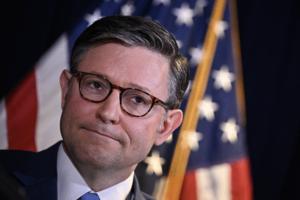
Commentary: Trump's budget would lock in big-government spending and deficits
President Donald Trump’s 2026 “skinny budget” is out, and at first glance it gives small-government advocates reason to cheer. It proposes deep cuts to domestic agencies, calls for eliminating redundant programs and gestures toward reviving federalism by shifting power and responsibility back to the states. It promises to slash ...Read more
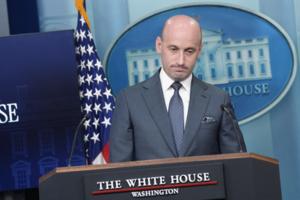
Editorial: Hands off -- Trump attempt to suspend habeas corpus is a bright red line
The Trump White House is 1,000% wrong in “actively looking at” suspending habeas corpus in the context of immigration. It is the only protection written into the Constitution, not the Bill of Rights, a fundamental shield — stretching back to the Magna Carta — to contest one’s detention by the government: “The Privilege of the Writ of...Read more
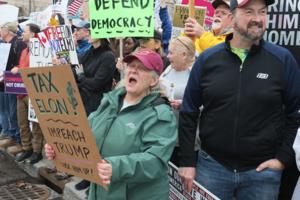
Commentary: Why older Americans are Trump's biggest nightmare
That there’s a spasm of dislike for Trump’s chaotic presidency is not news — new polls show Americans unhappier with this president at 100 days than any of his predecessors.
Much of the attention has focused on his rapidly falling numbers with young voters (“Is Gen Z abandoning Trump?” Newsweek asked last week), but we’re seeing ...Read more
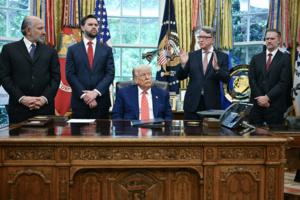
Editorial: A weak tariff payoff -- First trade deal won't stop Trump tariff plan from causing pain
It’s no surprise that President Donald Trump’s first trade “deal” after his disastrous tariffs is more-so a framework than a done deal, but a handshake with British Prime Minister Keir Starmer is better than a trade war.
Still, we are hard-pressed to give Trump too much credit just like you wouldn’t exactly praise a friend for paying ...Read more
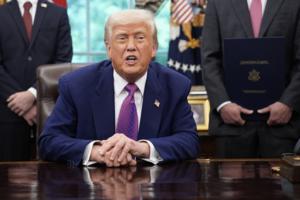
Trump's diplomatic frenzy spins big gambles as signs of success
It was the kind of week that would make even a seasoned diplomat’s head spin: China trade talks, India-Pakistan truce, a ceasefire with the Houthis and Iran nuclear negotiations. Not to mention a Gaza hostage release, new trade framework with the U.K. and the tantalizing prospect of ending Russia’s war in Ukraine.
For President Donald ...Read more
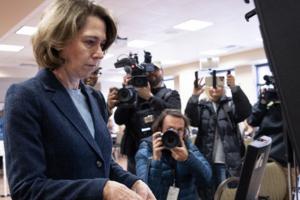
Challenge to Wisconsin map adds latest wrinkle to 2026 House fight
WASHINGTON — Two lawsuits in Wisconsin are seeking to have the state’s congressional map thrown out in a development that follows Republican warnings earlier this year that the election of a Democratic-backed state Supreme Court candidate could lead to new lines.
With the lawsuits filed last week, Wisconsin joined a handful of states that ...Read more
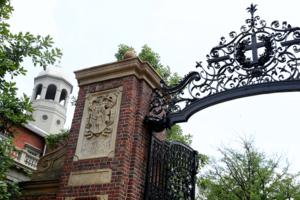
Harvard highlights 'common ground' with Trump administration but says university will 'not surrender'
BOSTON — Harvard President Alan Garber sought “common ground” with the Trump administration in the latest communications Monday, but again said the university will “not surrender its core, legally-protected principles out of fear of unfounded retaliation.”
“As your letter suggests, we share common ground on a number of critical ...Read more
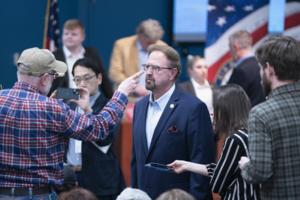
NC congressman hit another man with a clipboard at conference, Rotarian says
WASHINGTON — U.S. Rep. Chuck Edwards said he was the victim of a drunken man’s belligerence on Saturday night, but a Rotarian who helped organize the event where Edwards spoke said the congressman was the aggressor — striking a man in anger with a clipboard after finishing his speech.
Guy Gooder says he heard, but didn’t see, Edwards ...Read more
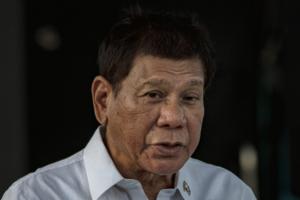
Dutertes outperform in Philippine midterms in blow for Marcos
MANILA, Philippines — Philippine voters appear to have delivered a blow to President Ferdinand Marcos Jr. and a boost to the rival Duterte clan, whose members and allies outperformed expectations in Monday’s midterm elections.
Ex-President Rodrigo Duterte looks set to become mayor of Davao City despite his detention by the International ...Read more
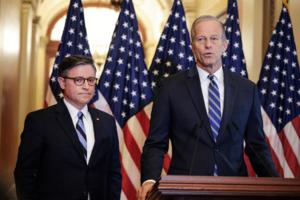
GOP to phase out Biden energy credits to pay for tax cuts
WASHINGTON — House Republicans are proposing to eliminate a tax credit for electric vehicles and phase out incentives to develop clean-energy projects to help pay for President Donald Trump’s massive tax package.
The incentives put in place by former President Joe Biden’s signature climate law have been ripe targets for lawmakers looking...Read more
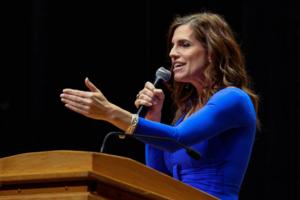
Rep. Nancy Mace sues man she accused in House floor speech for defamation
U.S. Rep. Nancy Mace, R-S.C., has filed a defamation lawsuit against a man she previously accused of involvement in sex crimes.
The lawsuit filed in a Charleston court Monday accuses Eric Bowman of defaming her in a series of tweets that the lawsuit calls “objectively falsehoods,” including the allegation that Mace did “illegally steer or...Read more
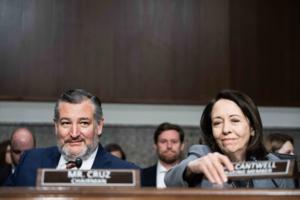
Reconciliation would auction 600 megahertz of federal spectrum
WASHINGTON — The House Energy and Commerce Committee’s reconciliation text would renew the Federal Communications Commission’s lapsed spectrum auction authority through fiscal 2034 and establish a pipeline of at least 600 megahertz of mid-band spectrum.
Chairman Brett Guthrie, R-Ky., disclosed in an op-ed in The Wall Street Journal that ...Read more
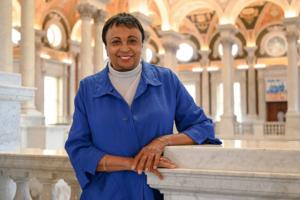
Carla Hayden's firing at Library of Congress triggers investigation request
The dismissal of Librarian of Congress Carla Hayden has triggered a group of Democratic lawmakers to request an investigation of potential improper communication between the Library of Congress and the executive branch.
“The abrupt firing of Librarian of Congress Dr. Carla Hayden raises serious concerns that the executive branch is improperly...Read more
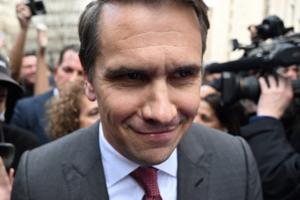
Trump taps Deputy Attorney General Todd Blanche as acting head of Library of Congress
WASHINGTON — Uncertainty gripped the Library of Congress on Monday as the White House moved to assert more control over the legislative branch agency, naming Deputy Attorney General Todd Blanche as its acting head.
It comes after President Donald Trump fired longtime Librarian of Congress Carla Hayden last week, followed by U.S. Copyright ...Read more
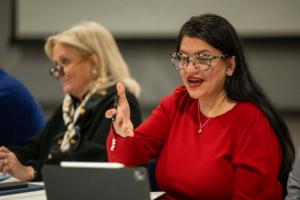
Tlaib backs primary challenger to Detroit colleague Thanedar in Congress
WASHINGTON — Detroit U.S. Rep. Rashida Tlaib is endorsing a state lawmaker who is trying to unseat U.S. Rep. Shri Thanedar, a fellow Democrat who represents the district next door to hers in Congress.
Tlaib on Monday said she is backing state Rep. Donavan McKinney’s bid for Congress in Michigan’s 13th District and also took a dig at the ...Read more
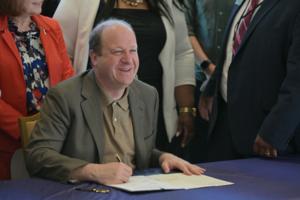
Colorado adds voting protections to law, reforms vacancy elections under bills signed by Gov. Jared Polis
DENVER — Gov. Jared Polis signed new laws Monday that codify federal voting protections in Colorado’s election laws and reform the state’s much-maligned process of replacing lawmakers who leave office early.
Officially dubbed the Colorado Voting Rights Act, Senate Bill 1 is aimed at ensuring that Colorado law prevents discriminatory ...Read more
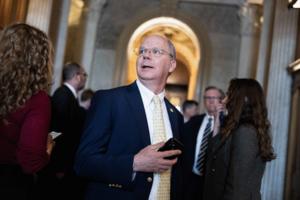
Most controversial Medicaid cuts left out of reconciliation text
WASHINGTON — House Republicans on Sunday released the text of a long–awaited package that would make the most significant changes to Medicaid since the passage of the 2010 health care law, including work requirements on most healthy adults, more frequent eligibility checks on beneficiaries and changes to the way states raise their share of ...Read more
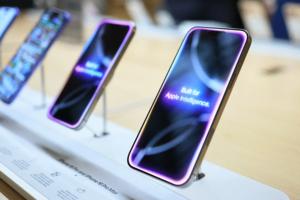
Trump talks with Apple's Cook as iPhone price hikes loom
U.S. President Donald Trump said he spoke with Apple Inc. Chief Executive Officer Tim Cook earlier on Monday, just as the iPhone maker was reported to be considering price increases later this year.
Apple is weighing whether to raise prices for an iPhone lineup coming in the fall, the Wall Street Journal reported, citing people familiar with ...Read more
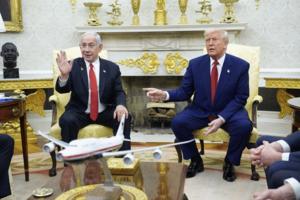
Trump casts Netanyahu adrift with shifts on Iran, Houthis, Gaza
TEL AVIV, Israel — Israeli Prime Minister Benjamin Netanyahu would normally celebrate a hostage release such as that taking place on Monday, though in this case the deal with Hamas is another sign U.S. President Donald Trump is starting to make decisions without him.
The freeing of Edan Alexander, the last living U.S. citizen held captive by...Read more
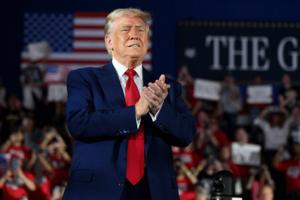
Analysis: Trump pivots from populist economic campaign ideas
WASHINGTON — Almost four months into his second term, President Donald Trump has moved away from his populist campaign rhetoric to a much bolder and disruptive economic policy approach built on tariffs — even being open to a potential recession — and urging Americans to consume less.
On the campaign trail, his sales pitch focused, in ...Read more
Popular Stories
- Massachusetts Gov. Maura Healey is responsible for migrant shelter problems, Kennealy says in new ad
- Tlaib backs primary challenger to Detroit colleague Thanedar in Congress
- Trump vs. Massachusetts: Brazilian child rapist in home day care ICE flashpoint
- Israel endorses Trump food plan for Gaza but details are scarce
- Trump taps DOJ deputy Todd Blanche as acting head of Library of Congress


























































